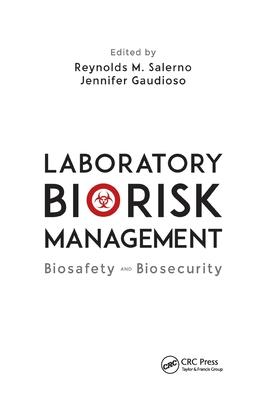Over the past two decades bioscience facilities worldwide have experienced multiple safety and security incidents, including many notable incidents at so-called "sophisticated facilities" in North America and Western Europe. This demonstrates that a system based solely on biosafety levels and security regulations may not be sufficient.
Setting the stage for a substantively different approach for managing the risks of working with biological agents in laboratories, Laboratory Biorisk Management: Biosafety and Biosecurity introduces the concept of biorisk management-a new paradigm that encompasses both laboratory biosafety and biosecurity. The book also provides laboratory managers and directors with the information and technical tools needed for its implementation.
The basis for this new paradigm is a three-pronged, multi-disciplinary model of assessment, mitigation, and performance (the AMP model). The application of the methodologies, criteria, and guidance outlined in the book helps to reduce the risk of laboratories becoming the sources of infectious disease outbreaks.
This is a valuable resource for those seeking to embrace and implement biorisk management systems in their facilities and operations, including the biological research, clinical diagnostic, and production/manufacturing communities.
